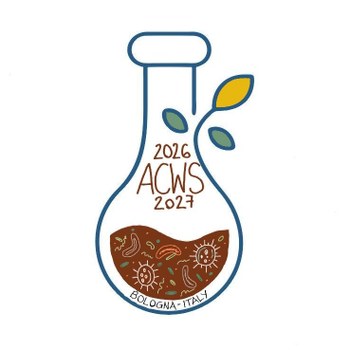
The interconnected challenges of climate change, anthropogenic activities, and the need to sustain a growing global population are increasingly compelling the need for a comprehensive approach to the soil-plant-microbiome system, necessitating consideration from both agronomic and environmental standpoints. Notably, extreme rainfall events, which are characterized by the occurrence of landslides and flooding, are becoming increasingly prevalent. These events are interspersed with prolonged drought periods, which complicate and economically burden the process of harvesting crops. Consequently, it is imperative to prioritize the enhancement of soil resilience and resistance and the protection of the ecological value of the soil-plant system.
In this regard, the field of agricultural chemistry plays a pivotal role by facilitating the identification of management strategies for the soil-plant-microbiome system.
These strategies are to be aligned with prevailing policies that are oriented towards environmental sustainability and the promotion of a circular economy. The utilization of organic-based fertilizers, biostimulants, nanofertilizers, growth-promoting microorganisms, and biodegradable bioplastic as alternatives to conventional plastics constitutes a series of winning strategies that have the potential to maintain or enhance soil fertility and quality, as well as promote plant growth and enhance their nutritional value.
The present edition of the Agricultural Chemistry Winter School will prioritize the aforementioned concerns while promoting the importance of agricultural chemistry research among young scientists in an environment that is international, multidisciplinary, and welcoming. The Winter School, organized by the Italian Society of Agricultural Chemistry (SICA) and the Department of Agricultural and Food Sciences at Alma Mater Studiorum—University of Bologna, is offered to doctoral students, postdoctoral researchers, and early-stage researchers.
The objective of the School is to provide an opportunity to: (I) facilitate the exchange and extension of understanding of the theoretical, conceptual, and applicative aspects of soil ecology, plant, and environmental sciences; (II) provide insights into novel methodological and analytical approaches while building research networks; and (III) consolidate scientific communication skills. The program will therefore offer a series of activities, including keynote lectures, seminars, and workshops, as well as oral and poster presentations by participants.
During the designated time frame, the participants will engage in a self-evaluation process of the posters. The evaluation will be conducted in a manner that is both objective and transparent, with the ultimate objective of recognizing the achievements of two posters.
valeria.taraborell3@unibo.it